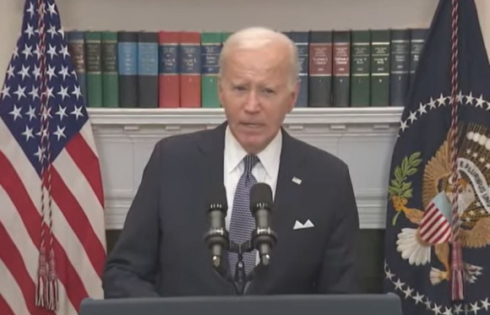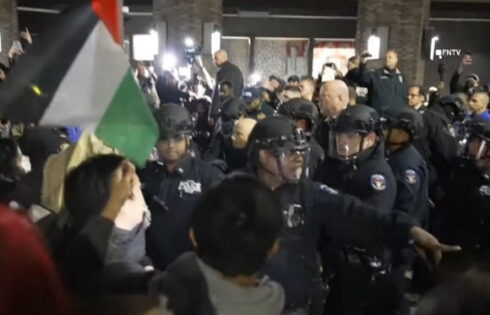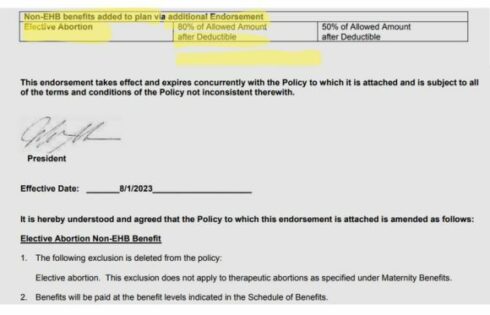
It tried to exclude time his lawyer spent preparing for second ‘fairer’ hearing
Nearly a year after a male student and University of Connecticut jointly submitted a plan to end his litigation against the school for its sexual misconduct investigation, the judge in the case has figured out UConn’s legal bill.
The taxpayer-funded university must pay “John Doe” $60,160 in attorney’s fees and $3,035 in costs because he is the “prevailing party” in the due process and sex discrimination litigation, U.S. District Judge Michael Shea determined in a Thursday ruling.
The “consent order” the parties submitted last year, which shortly followed Shea’s temporary restraining order, “materially altered the legal relationship between the parties in favor of Doe,” according the ruling.
That’s because Shea largely gave the student what he sought: UConn had to let him enroll in spring classes, formally reinstate him, remove the two-year suspension from his transcript and give him “new, fairer procedures” in his Title IX adjudication. John said he was deemed “not responsible” in the “rehearing” that followed the consent order.
UConn took no position on whether John was the prevailing party, which the Supreme Court defines as a plaintiff who succeeds “on any significant issue” to achieve “some of the benefit” that person sought in litigation. Their agreement preempted a hearing before Shea on John’s motion for a preliminary injunction.
The university submitted several objections to John’s sought attorney’s fees, including that they should be reduced by 75 percent because John only achieved “partial success” in the litigation. Shea largely rejected the university’s arguments but cut about 40 percent off John’s sought legal fees and costs.
‘It is of no consequence’ that UConn ‘did not admit to liability’
John sued the university for violation of due process and Title IX, as well as breach of contract and breach of the covenant of good faith and fair dealing.
He said the university “pre-judged” him guilty, “effectively” threw him out before its investigation was complete, hid charges against him, refused his exculpatory evidence, and subjected him to a “biased process calculated” to support his accuser.
UConn had barred John’s firsthand witnesses from submitting statements that his accuser initiated “sexual activity” with him in a crowded car, by “grinding” and “gyrating” on him. Hearing officers only let him dispute the nature of their sexual encounter in a dorm room later that night.
MORE: Judge scolds UConn for banning witness testimony against accuser
Shea eviscerated university and state lawyers for arguing their witness testimony wouldn’t be relevant, including because they weren’t looking directly at the accuser during her alleged grinding. The judge also rebuked defendants for inventing a UConn policy out of thin air: that John’s witnesses had to testify in person.
In Thursday’s ruling, Shea explained why John was the prevailing party under the Supreme Court’s “generous formulation” of the concept.
Contrary to the university’s argument, “any suggestion that the change was de minimis or insignificant is belied by the change in outcome,” the judge wrote: Not only was John’s guilty finding and two-year suspension vacated, but the new Title IX proceeding with different procedures exonerated him and he finished his education.
“It is of no consequence” that the university “did not admit to liability” in the agreement with John that followed Shea’s temporary restraining order, the judge said.
Deserves fees because of ‘excellent’ results John obtained
John’s lawyer Michael Thad Allen didn’t convince Shea to cover every part of the campus and legal proceedings in his request for fees and costs, however, which totaled $105,500.
His Title IX proceeding was not a “statutorily mandated administrative proceeding” under which Allen is eligible for fees without also identifying “the discrete portions of such fees that were useful and necessary” in his subsequent litigation, according to the judge.
Shea noted that he didn’t mention John’s Title IX claim in the temporary restraining order, and the parties left it out of the consent order, “which focuses on revised procedures for the rehearing,” so John may not actually be the prevailing party on that count.
If Allen can show specific time periods representing John in his Title IX proceeding that “had a nexus to his work in the litigation,” the lawyer may be able to recover some fees, the judge said.
MORE: Shea halts UConn punishment for second time in a week
He noted that John claimed the university refused to let his witnesses testify, on the grounds that “campus court was not a court of law and objections did not apply,” so perhaps Allen spent time researching due process rights in campus proceedings. But the first eligible period for fees in Allen’s materials are when he started working on the lawsuit, Shea said.
Turning to UConn, the judge said it failed to show which of Allen’s time-sheet entries, which meet basic legal requirements, are “vague” or “overlapping” such that they should be excluded from his granted fees. Allen was deprived one hour of sought fees, however, for his own errors, which required filing an amended complaint.
The university didn’t get anywhere close to reducing Allen’s fees by 75 percent, as it sought. Contrary to its claim that John only succeeded on one of his four claims (25 percent), John obtained “all the relief he sought” in the TRO and three claims in his suit, Shea said – reinstatement to his class, expungement of sexual misconduct claims from his transcript, and the revised procedures for his Title IX rehearing.
“As a practical matter, I would characterize the results obtained for Doe as excellent,” the judge wrote:
Ultimately, [Shea’s orders and the mandated rehearing] allowed him to graduate from college on schedule – something that no doubt mattered more to Doe than any declaratory judgment the Court might have rendered and probably even any damages award he might realistically have won.
History professor-turned-lawyer has a ‘unique ability’
UConn failed to convince Shea that Allen spent “substantial time” devoted to the claims the judge ignored in his TRO, related to breach of contract and Title IX. It was only 18 days between the lawsuit’s filing and the TRO, whereas the cases cited by UConn went through full jury trials.
“The procedural history of this case is distinguishable,” given that John was “so successful” on due process that he quickly obtained a settlement, Shea wrote: “I decline to punish such success.”
Beyond removing about 31 percent of Allen’s submitted time from eligibility, UConn’s primary victory was reducing its opponent’s sought hourly rate to $400. The $450 sought by Allen is “slightly high in this district” for his experience, Shea agreed.
MORE: Shea stops UConn from punishing students for protected speech
But the judge credited Allen’s “unique ability” to represent John despite only practicing law for 10 years: The lawyer was formerly a “tenured history professor,” which he said gave him experience navigating “the machinery of universities from the inside” and representing John well. Shea also cited Allen’s “industry-specific experience” as a reason not to gut the hourly rate.
The judge rebuked UConn for arguing John’s Title IX rehearing – the result of Shea’s order on “new, fairer procedures” – should not be eligible for Allen’s fees. “This argument reflects a lack of understanding on how to prepare for a hearing,” he wrote.
It was not “redundant” to prepare witnesses, even those who wanted to testify at the original hearing, for a hearing three months later. “No competent lawyer would rely on conversations with prospective witnesses held three months before trial to suffice as preparation for putting a witness on the stand,” Shea said.
He allowed the full hours sought by Allen in preparing his petition for fees, which amount to 15 percent of the total award. This is well under the 24 percent generally observed by Shea’s fellow judges under the jurisdiction of the 2nd U.S. Circuit Court of Appeals, and Joh’s litigation involved “complex legal issues,” he said.
MORE: UConn allows witness testimony against accuser to resolve suit
IMAGE: Roman Samborskyi/Shutterstock
Like The College Fix on Facebook / Follow us on Twitter





Please join the conversation about our stories on Facebook, Twitter, Instagram, Reddit, MeWe, Rumble, Gab, Minds and Gettr.